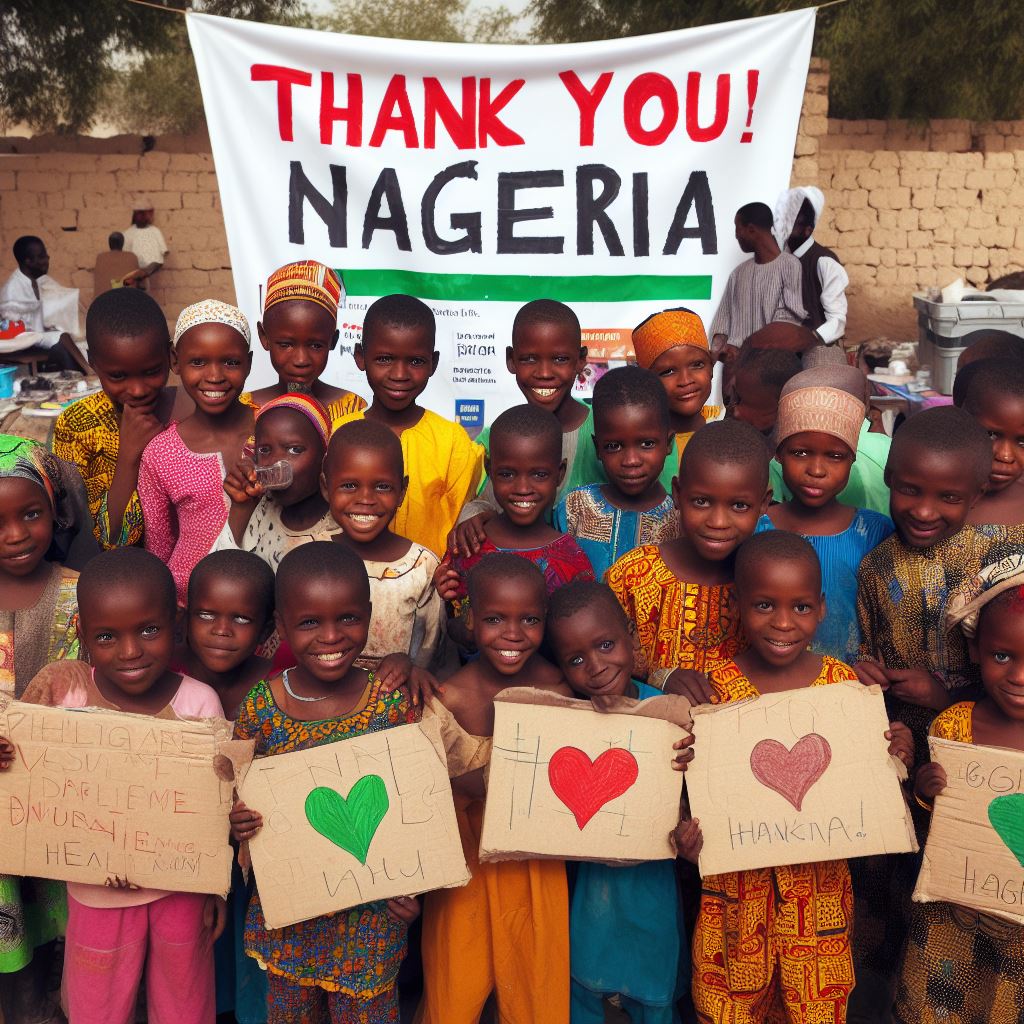Introduction
Non-profit fundraising plays a vital role in Nigeria’s economy by providing necessary resources for social welfare programs, educational initiatives, healthcare services, and environmental conservation.
Without adequate funding, these organizations would struggle to achieve their objectives and positively impact society.
In this blog post, we will explore various best practices for successful non-profit fundraising in Nigeria.
The strategies discussed will help organizations optimize their fundraising efforts and maximize the impact of their initiatives.
We will delve into topics such as effective communication and storytelling techniques to connect with potential donors emotionally.
Additionally, we will discuss the significance of building long-term relationships with donors through gratitude and regular updates on project outcomes.
Furthermore, we will explore the importance of embracing technology and digital platforms to broaden the reach of non-profit fundraising campaigns in Nigeria.
Leveraging social media, online fundraising platforms, and email marketing can significantly enhance an organization’s fundraising potential.
Additionally, we will touch upon the significance of transparency and accountability in non-profit organizations.
By implementing strong governance practices, organizations can instill trust in their donors and ensure that funds are used efficiently and ethically.
By adopting these best practices, non-profit organizations in Nigeria can establish sustainable fundraising programs, expand their impact, and create meaningful change in the communities they serve.
Understanding Non-Profit Fundraising in Nigeria
A. Definition of non-profit fundraising
Non-profit fundraising refers to the activities and efforts undertaken by non-profit organizations in Nigeria to secure financial resources from individuals, corporations, and government agencies to support their charitable causes.
- It involves soliciting donations, grants, and sponsorships through various channels such as events, online platforms, and direct appeals.
- The funds raised are used to support the organization’s programs and initiatives that address societal needs.
B. Current state of non-profit organizations in Nigeria
Non-profit organizations in Nigeria play a crucial role in addressing social, economic, and environmental challenges in the country.
- They focus on diverse areas such as education, healthcare, poverty alleviation, and women empowerment.
- They are predominantly registered as non-governmental organizations (NGOs) or community-based organizations (CBOs).
C. Challenges faced by non-profit organizations in fundraising activities
Despite their importance, non-profit organizations in Nigeria encounter numerous challenges when it comes to fundraising.
- Limited donor base: Non-profit organizations often struggle to find a sufficient number of donors due to a lack of awareness about their causes and activities.
- Economic constraints: The prevailing economic conditions in Nigeria can affect individuals’ willingness and ability to contribute financially.
- Inadequate funding mechanisms: The absence of sustainable and reliable funding mechanisms makes it difficult for non-profit organizations to plan and execute their projects effectively.
- Limited government support: While the Nigerian government acknowledges the importance of non-profit organizations, there is a lack of consistent financial backing or incentives.
- Regulatory and administrative burdens: The complex registration process, frequent audits, and compliance requirements add additional challenges for non-profit organizations.
- Public trust issues: Some non-profit organizations in Nigeria have faced allegations of mismanagement and misuse of funds, eroding public trust in the sector as a whole.
- Lack of skilled fundraising professionals: Non-profit organizations struggle to hire and retain skilled fundraising professionals who can effectively implement fundraising strategies.
Addressing these challenges and enhance non-profit fundraising in Nigeria
To address these challenges and enhance non-profit fundraising in Nigeria, we need to consider best practices that can make a significant positive impact on the sector.
- Improve networking and collaboration: Non-profit organizations should collaborate with each other, share resources, and work collectively to maximize their impact and reach.
- Enhance transparency and accountability: Non-profit organizations need to ensure proper financial management, regular audits, and transparent reporting to foster public trust.
- Invest in capacity building: Organizations should invest in training and development programs for staff members engaged in fundraising activities to enhance their skills and knowledge.
- Tap into digital fundraising platforms: Utilizing online platforms can help non-profit organizations reach a wider audience and diversify their donor base.
- Foster partnerships with businesses: Collaborations with businesses can provide both financial support and access to new networks and resources.
- Advocate for government support: Non-profit organizations should lobby for increased government support through grants and tax incentives to encourage philanthropy.
In essence, non-profit fundraising plays a crucial role in sustaining charitable initiatives in Nigeria.
Despite the challenges faced, adopting best practices can help these organizations overcome obstacles and drive positive change in the country.
By enhancing collaboration, transparency, and capacity, and leveraging new platforms and partnerships, non-profit organizations can maximize their impact and further their important work for the betterment of Nigerian society.
Identifying Target Supporters and Donors
A. Importance of identifying target audience
- Identifying target supporters and donors is crucial for the success of non-profit fundraising in Nigeria.
- Understanding the specific audience helps in tailoring fundraising efforts and communication strategies.
- Efficient use of resources can be achieved by focusing on individuals or groups most likely to support the cause.
- Target audience identification allows for a personalized approach, enhancing engagement and support levels.
- Without knowing the target supporters and donors, fundraising efforts can become dispersed and less effective.
B. Researching and segmenting potential supporters and donors
- Thorough research is necessary to identify potential supporters and donors in Nigeria.
- Gather information about individuals, organizations, and communities that have expressed interest in similar causes.
- Segment potential supporters based on demographics, interests, beliefs, and previous giving history.
- Segmentation allows for tailored communication strategies that resonate with the specific groups.
- Utilize data analytics and donor management systems to streamline the segmentation process.
- Regularly update the donor database to stay informed about potential supporters and their preferences.
C. Effective communication strategies to engage potential supporters
- Develop a compelling narrative that communicates the mission, impact, and urgency of the non-profit organization.
- Create engaging content through storytelling, visuals, and impactful testimonials from beneficiaries.
- Utilize various communication channels such as social media, email newsletters, and website blogs.
- Personalize communication by addressing potential supporters by name and recognizing their past support, if applicable.
- Regularly update potential supporters with progress reports, success stories, and future plans.
- Implement targeted fundraising campaigns that align with the interests and motivations of different supporter segments.
- Provide opportunities for potential supporters to actively participate in the non-profit’s initiatives.
- Organize events, online or offline, to engage potential supporters and create a sense of community.
- Establish a feedback mechanism to listen to potential supporters, address concerns, and improve engagement.
- Show appreciation and gratitude to all supporters, demonstrating the impact of their contributions.
In the dynamic landscape of Non-Profit Fundraising in Nigeria, pinpointing dedicated supporters is pivotal.
Tailoring efforts towards specific audiences maximizes impact and optimizes resource allocation.
Thorough research, aided by data analytics, lays the groundwork for identifying potential backers.
Segmentation, a key strategy, enables personalized communication, resonating deeply with diverse groups.
Engaging content across various channels—social media, emails, and blogs—effectively conveys the organization’s mission.
Regular updates and targeted campaigns maintain a meaningful connection. Active participation opportunities and robust feedback mechanisms foster a sense of community.
Appreciation, irrespective of donation size, ensures supporters comprehend the lasting impact of their contribution.
In the realm of Non-Profit Fundraising in Nigeria, strategic identification and engagement are the bedrock of success.
Building a Strong Fundraising Team
A. Hiring skilled fundraisers and volunteers
One of the most crucial steps in building a strong fundraising team is hiring skilled fundraisers and volunteers.
These individuals will play a significant role in ensuring the success of your nonprofit fundraising efforts.
When hiring fundraisers, it is essential to look for candidates with a proven track record in fundraising.
They should have experience in cultivating donor relationships, writing compelling grant proposals, and organizing successful fundraising events.
Look for individuals who have a passion for your organization’s cause and are committed to making a difference.
In addition to fundraisers, volunteers are also a valuable asset to your team. They can help with various aspects of fundraising, such as event planning, donor outreach, and administrative tasks.
Volunteers should be motivated and dedicated to supporting your organization’s mission.
When recruiting volunteers, it is crucial to clearly communicate the role expectations and time commitment required.
Provide them with a comprehensive orientation to ensure they understand the mission and objectives of your organization.
This will help them feel valued and motivated to contribute their time and skills effectively.
B. Training and equipping the fundraising team
Once you have assembled your fundraising team, it is essential to invest in their training and ensure they have the necessary resources to succeed.
Provide them with the tools and knowledge they need to effectively engage donors and raise funds.
Organize regular training sessions to update your team on the latest fundraising techniques and strategies.
Invite experts in the field to conduct workshops and provide insights into successful fundraising practices.
This will equip your team with the skills and confidence needed to approach potential donors and secure financial support.
In addition to training, provide your team with the necessary resources, such as donor databases, fundraising software, and marketing materials.
These tools will help streamline their efforts and enable them to track donor interactions, analyze data, and communicate effectively.
C. Establishing clear roles and responsibilities within the team
To ensure smooth operations and maximize efficiency, it is crucial to establish clear roles and responsibilities within your fundraising team.
Clearly define each team member’s responsibilities and ensure they understand how their role contributes to the overall fundraising strategy.
Assign specific tasks to each team member based on their skills and strengths. This will help streamline workflow and prevent duplication of efforts.
Regularly communicate and provide feedback to ensure everyone is on the same page and working towards the same goals.
Establishing a clear chain of command is also important to avoid confusion and streamline decision-making processes.
Assign a team leader who will provide guidance and support to the rest of the team. This will ensure effective coordination and accountability within the team.
In fact, building a strong fundraising team is crucial for the success of your nonprofit fundraising efforts.
By hiring skilled fundraisers and volunteers, providing them with the necessary training and resources, and establishing clear roles and responsibilities, you can maximize your team’s potential and achieve your fundraising goals.
Together, you can make a significant impact and contribute to the growth and sustainability of your organization.
Crafting a Compelling Fundraising Campaign
A. Setting Fundraising Goals and Objectives
- Clearly define your fundraising goals to ensure clarity and focus throughout the campaign.
- Establish realistic and achievable objectives that align with your organization’s mission and vision.
- Create a timeline with specific milestones to track progress and keep your team motivated.
- Consider previous fundraising efforts, donor feedback, and market research when setting goals.
B. Developing an Impactful Campaign Message
- Craft a compelling and concise message that highlights the importance of your cause.
- Use emotionally engaging language to connect with potential donors and inspire action.
- Clearly communicate the impact their contribution will make and the difference it will make in people’s lives.
- Ensure the message is consistent across all campaign materials, including social media, emails, and promotional materials.
C. Utilizing Storytelling Techniques to Evoke Emotional Responses
- Share stories and testimonials from individuals who have directly benefited from your organization’s work.
- Use relatable narratives to create empathy and provoke emotional responses from your audience.
- Utilize visuals such as photographs and videos to enhance the storytelling experience.
- Incorporate real-life examples that demonstrate the positive change your organization is making.
Additional Best Practices
- Segment your audience to tailor your campaign messages and strategies to different donor profiles.
- Incorporate peer-to-peer fundraising, where supporters can create their own fundraising pages to amplify your reach.
- Utilize social media platforms to promote your campaign, engage with donors, and share progress updates.
- Offer benefits or incentives to encourage donors, such as exclusive updates or recognition.
- Develop partnerships with local businesses or organizations to create mutually beneficial collaborations.
- Leverage partnerships with influencers or celebrities to extend your campaign’s reach and credibility.
- Provide multiple donation options, including online platforms, mobile payments, bank transfers, and cash donations.
- Regularly communicate progress updates to show transparency and keep donors engaged.
- Show gratitude and appreciation to all donors, regardless of the donation size, with personalized thank-you notes or acknowledgments.
- Continuously evaluate and measure campaign performance to identify areas for improvement and make adjustments as needed.
- Conduct post-campaign assessments to analyze the impact of the campaign and gather feedback from donors.
By following these best practices, you can craft a compelling fundraising campaign in Nigeria that effectively engages donors and drives meaningful impact for your non-profit organization.
Remember, storytelling, clear messaging, and setting realistic goals are key pillars for success.
Read: Career Path: Becoming a Fundraiser in Nigeria

Diversifying Fundraising Strategies
A nonprofit organization in Nigeria can improve its fundraising efforts by diversifying its strategies.
By exploring various fundraising methods, leveraging social media and online platforms, and engaging local communities and partnerships, nonprofits can increase their chances of success.
A. Exploring Various Fundraising Methods (events, grants, sponsorships, etc.)
Nonprofits can explore different fundraising methods to expand their donor base and generate more funds. One effective strategy is organizing fundraising events.
These events can include charity galas, auctions, or fun runs, where participants can contribute by purchasing tickets or making donations.
Another method is applying for grants. Nonprofits can research and identify grant opportunities provided by government agencies, foundations, or corporations that align with their mission and programs.
Writing compelling grant proposals can significantly increase the chances of being awarded funds.
Nonprofits should also consider seeking sponsorships from businesses and individuals who share their values and have an interest in supporting their cause.
Sponsors can provide financial contributions or in-kind donations, such as goods or services, in exchange for recognition and exposure.
B. Leveraging Social Media and Online Platforms
In today’s digital age, social media and online platforms have become powerful tools for fundraising.
Nonprofits can create and maintain a strong online presence by using platforms such as Facebook, Twitter, and Instagram.
Through these platforms, organizations can share their mission, success stories, and impact with a wider audience.
They can also promote fundraising campaigns, provide updates on ongoing projects, and engage directly with potential donors.
Online fundraising platforms, such as crowdfunding websites, provide nonprofits with an opportunity to reach a larger pool of potential donors.
These platforms allow individuals from different locations and backgrounds to discover and contribute to causes they resonate with.
C. Engaging Local Communities and Leveraging Partnerships
Nonprofit organizations should actively engage with the local community to build relationships and gain support.
They can organize community events, workshops, or awareness campaigns to raise awareness about their causes and build a network of passionate supporters.
Partnerships with local businesses, educational institutions, and community organizations can also be beneficial.
Nonprofits can collaborate on joint initiatives, share resources, and tap into established networks to reach more potential donors.
By creating mutually beneficial partnerships, nonprofits can leverage the strengths and resources of their partners, which can lead to increased fundraising opportunities.
In short, diversifying fundraising strategies is crucial for nonprofit organizations in Nigeria.
By exploring various fundraising methods, leveraging social media and online platforms, and engaging local communities and partnerships, nonprofits can enhance their fundraising efforts and make a bigger impact in their mission-driven work.
Leveraging Technology for Effective Fundraising
In today’s digital age, leveraging technology is crucial for non-profit organizations to maximize their fundraising efforts.
Here are three ways to effectively utilize technology for fundraising:
A. Utilizing crowdfunding platforms
One of the most effective ways to raise funds for non-profit organizations in Nigeria is through crowdfunding platforms.
These platforms provide a streamlined process for individuals and organizations to donate money to specific causes.
By creating a campaign on these platforms, non-profits can reach a wider audience and attract potential donors who are interested in their cause.
B. Implementing donor management systems
To successfully manage donor relationships, non-profits should consider implementing donor management systems.
These systems enable organizations to effectively track and organize donor information, including contact details, donation history, and communication preferences.
By utilizing a donor management system, non-profits can personalize their communication and cultivate long-term relationships with their donors, increasing the likelihood of future donations.
C. Tracking and analyzing fundraising data for better decision-making
In order to make informed decisions about fundraising strategies, non-profit organizations must track and analyze fundraising data.
By using data analytics tools, non-profits can gain valuable insights into donor behavior, identify trends, and evaluate the effectiveness of different fundraising campaigns.
This data-driven approach allows organizations to identify areas of improvement and make data-backed decisions to enhance their fundraising efforts.
In general, non-profit organizations in Nigeria can leverage technology to enhance their fundraising efforts.
By utilizing crowdfunding platforms, implementing donor management systems, and tracking fundraising data, these organizations can effectively reach a wider audience, cultivate donor relationships, and make informed decisions for better fundraising outcomes.
Embracing technology is essential for non-profits in Nigeria to thrive in today’s digital landscape.
Read: Real Stories: Success in Nigerian Fundraising Careers
Establishing Transparency and Accountability
A. Importance of transparency in non-profit fundraising
- Transparency is crucial to build trust and credibility with donors and supporters.
- Clear and open communication about the organization’s goals and activities fosters donor confidence.
- Transparency helps prevent misconceptions and misunderstandings about the purpose and use of funds.
- Donors want assurance that their contributions are used efficiently and effectively.
- Transparency enhances the organization’s reputation and increases its chances of attracting new donors.
B. Developing strong financial management practices
- Implementing robust financial protocols ensures accountability and prevents mismanagement of funds.
- Non-profit organizations should have a dedicated finance team to handle financial matters efficiently.
- Creating and adhering to budgets promotes responsible spending and prevents overspending.
- Conducting regular internal and external audits helps maintain financial transparency.
- Financial records should be easily accessible and updated regularly for stakeholders’ review.
C. Reporting and communicating impact to donors and supporters
- Regularly sharing impact reports demonstrates transparency and accountability to donors.
- Reports should highlight how donations were used and the positive outcomes achieved.
- Clear and concise communication about the organization’s achievements builds donor loyalty.
- Donors appreciate being informed about the organization’s progress and the impact of their contributions.
- Using various channels such as newsletters, social media, and events to communicate impact is essential.
Generally, establishing transparency and accountability is crucial for non-profit fundraising in Nigeria.
By emphasizing transparency, non-profit organizations can build trust, attract donors, and ensure efficient utilization of funds.
Moreover, developing strong financial management practices and regularly reporting impact create a culture of accountability and foster long-term relationships with donors and supporters.
Read: The Role of Technology in Fundraising in Nigeria
Learn More: Salary Insights: What Does a Sommelier Earn in Nigeria?
Building Long-Term Relationships with Donors
In the non-profit sector, building long-term relationships with donors is crucial for the sustainability of an organization.
Donors are the lifeblood of any non-profit, and their continued support is essential for its success.
Here are some best practices for creating and maintaining strong relationships with donors:
A. Personalized donor stewardship strategies
- Segment your donor base to tailor your communication according to their interests and preferences.
- Regularly communicate with donors through personalized emails, phone calls, or in-person meetings.
- Provide updates on how their contributions have made an impact and show appreciation for their involvement.
- Invite donors to events and activities where they can see the organization’s work firsthand.
- Offer exclusive opportunities for donors, such as behind-the-scenes tours or special recognition events.
B. Recognizing and appreciating donor contributions
- Publicly acknowledge and thank donors for their contributions through various channels, such as social media, annual reports, or newsletters.
- Send personalized thank-you notes to express gratitude for their support and highlight the difference they have made.
- Create a donor recognition program that provides different levels of acknowledgment based on the donors’ giving history.
- Consider naming opportunities for major donors to recognize their significant contributions.
- Regularly update donors on how their contributions are being utilized and the impact they are making.
C. Cultivating donor loyalty and sustaining long-term relationships
- Develop a strong communication strategy to keep donors engaged and informed about the organization’s activities.
- Share success stories and testimonials from beneficiaries to demonstrate the positive outcomes of their support.
- Offer opportunities for donors to get involved beyond financial contributions, such as volunteering or serving on advisory boards.
- Regularly evaluate and improve donor experiences to ensure satisfaction and address any concerns promptly.
- Provide ongoing updates about the organization’s goals, challenges, and progress to keep donors connected and invested.
Building long-term relationships with donors requires continuous effort and personalization.
By implementing personalized donor stewardship strategies, recognizing and appreciating donor contributions, and cultivating loyalty, non-profit organizations can establish strong bonds with their donors, ensuring their continued support and involvement.
Read: Fundraising Ethics in Nigeria: A Comprehensive Guide
Conclusion
A. Recap of the main points discussed in the blog post
Non-profit organizations in Nigeria face challenges in fundraising due to limited resources and inadequate strategies.
However, implementing best practices can improve their fundraising efforts.
B. Encouragement for non-profit organizations in Nigeria to implement best practices in fundraising
By adopting effective fundraising techniques such as engaging with donors, diversifying income sources, and leveraging technology, non-profit organizations can increase their chances of success.
C. Call-to-action for readers to support non-profit initiatives in Nigeria
It is crucial for readers to understand the importance of supporting non-profit initiatives in Nigeria.
By donating their time, resources, or funds, readers can make a significant impact in the lives of those in need.
In the end, non-profit fundraising in Nigeria can be challenging, but implementing best practices is essential.
By leveraging effective fundraising techniques and receiving support from readers, non-profit organizations can make a difference in the lives of the underprivileged in Nigeria.
Let us come together to support their initiatives and create a better future for all.




